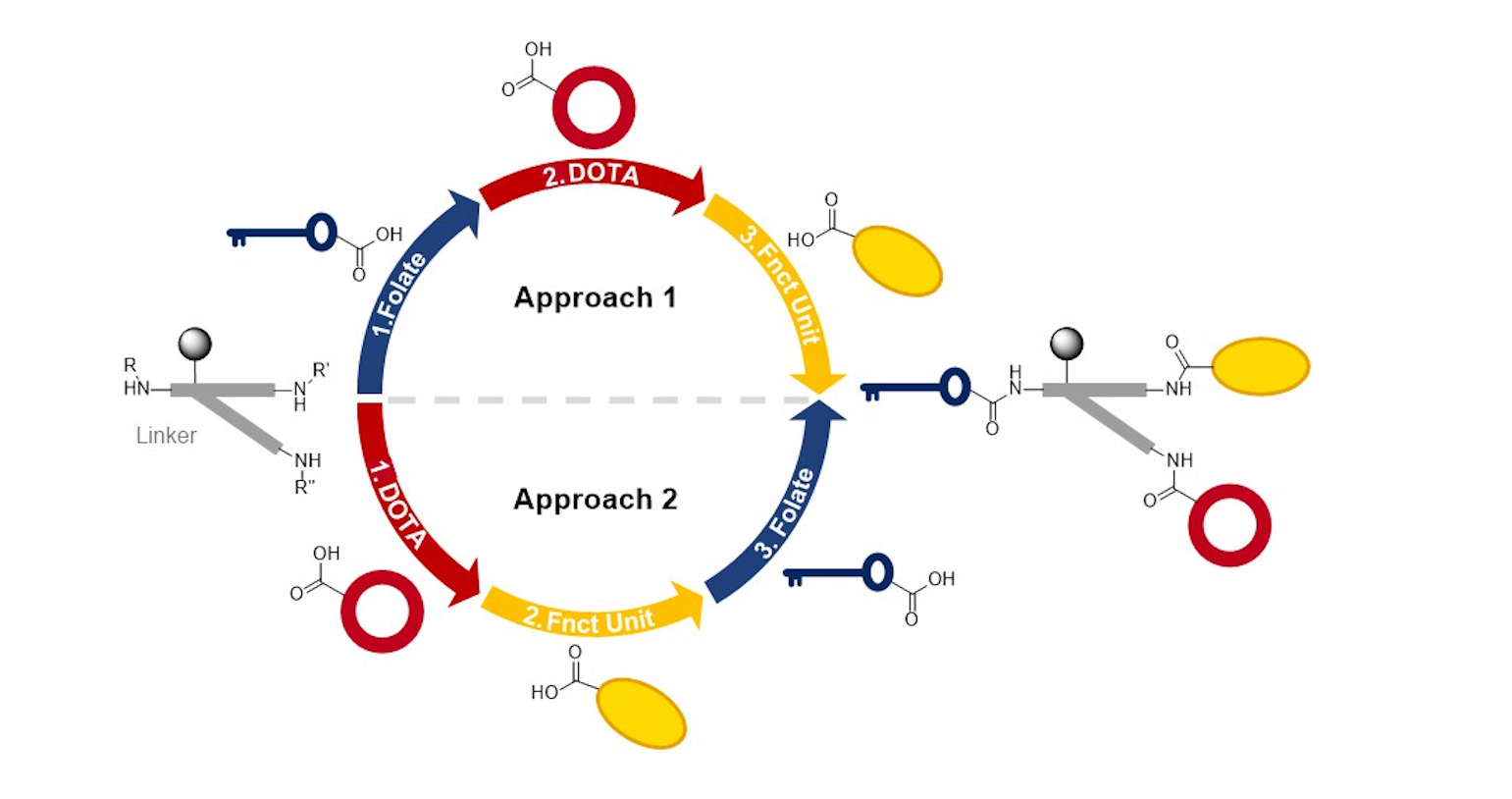Synthetic methodologies for the preparation of tumor-targeted radioligands
The development of radioligands with favorable pharmacokinetics requires the synthesis of compound libraries to gain knowledge about structure-activity relationships, which can then be used for structural optimization. For this reason, we aimed at the development of synthetic methods for the fast and easy preparation of a broad range of structurally modified tumor-targeting folate conjugates.
We developed two novel synthetic approaches based on solid-phase chemistry methods which allowed the modular buildup of complex folate conjugates consisting of several structural units. Each approach showed specific advantages depending on which of the introduced units was considered the most delicate in terms of availability, stability and costs. The new pathways facilitated the efficient preparation of a collection of folate conjugates with diverse structural modifications.
More information on the use of folate radioconjugates and radioligands for other tumor-associated targets for radionuclide therapy can be found at external page https://www.psi.ch/de/zrw/nuclide-chemistry
Literature: Luisa M. Deberle, Martina Benešová, Anna E. Becker, Magdalena Ratz, Patrycja Guzik, Roger Schibli, and Cristina Müller, Bioconjugate Chem. 2021, 32, 1617−1628.
